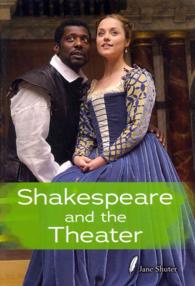Full Description
The facilitation of learning is a central feature of coaches' and coach educators' work. Coaching students and practitioners are, as a result, being expected to give increasing levels of thought towards how they might help to develop the knowledge and practical skills of others. Learning in Sports Coaching provides a comprehensive introduction to a diverse range of classic, critical, and contemporary theories of learning, education, and social interaction and their potential application to sports coaching. Each chapter is broadly divided into two sections. The first section introduces a key thinker and the fundamental tenets of his or her scholarly endeavours and theorising. The second considers how the theorist's work might influence how we understand and attempt to promote learning in coaching and coach education settings. By design this book seeks to promote theoretical connoisseurship and to encourage its readers to reflect critically on their beliefs about learning and its facilitation. This is an essential text for any pedagogical course taken as part of a degree programme in sports coaching or coach education.
Contents
1. Introduction: Towards a Theoretical Connoisseurship of Learning in Sports Coaching Part 1: Behaviourist and Social Cognitivist Theorists 2. Burrhus Frederic Skinner: Environmental Reinforcement in Coaching 3. Albert Bandura: Observational Learning in Coaching Part 2: Experiential Theorists 4. John Dewey: Experience, Inquiry, Democracy, and Community in Coaching 5. Donald Schön: Learning, Reflection, and Coaching Practice Part 3: Humanist Theorists 6. Abraham Maslow: Hierarchy of Coach and Athlete Needs 7. Carl Rogers: Person-Centred Learning in Coaching Part 4: Constructivist Theorists 8. Jean Piaget: Learning and the Stages of Athlete Development 9. Lev Vygotsky: Learning Through Social Interaction in Coaching 10. Yrjö Engeström: Coaching, Learning, and Activity Theory 11. Ivor Goodson: Narrative Coach Learning and Pedagogy Part 5: Critical and Post-Structural Theorists 12. Paulo Freire: Problem-Posing Coach Education 13. Jack Mezirow: Transformative Coach and Athlete Learning 14. Robin Usher: A Post-Structuralist Reading of Learning in Coaching Part 6: Social and Ethical Theorists 15. Herbert Blumer: Coaching and Learning as Symbolic Interaction 16. Jean Lave: Learning in Coaching as Social Praxis 17. Peter Jarvis: Lifelong Coach Learning 18. Nel Noddings: Caring, Moral Learning, and Coaching 19. Conclusion: Recognizing the Dimensions and Tensions of Learning in Coaching





